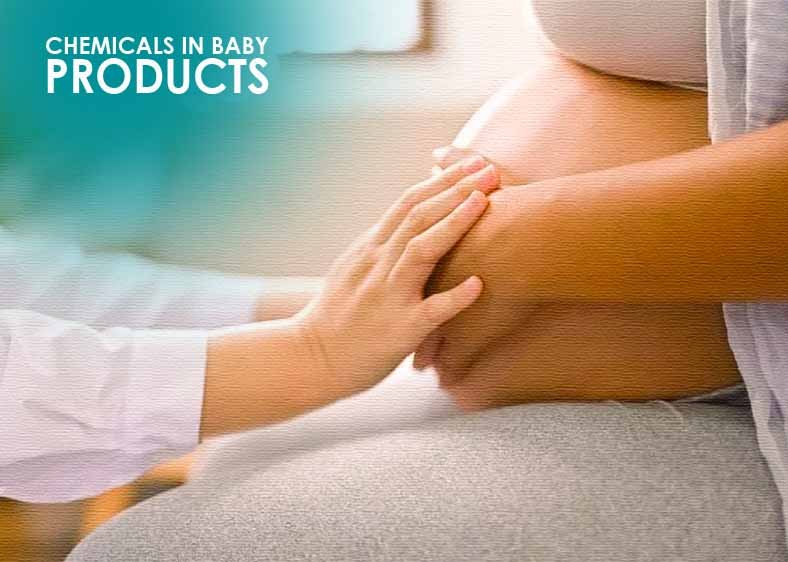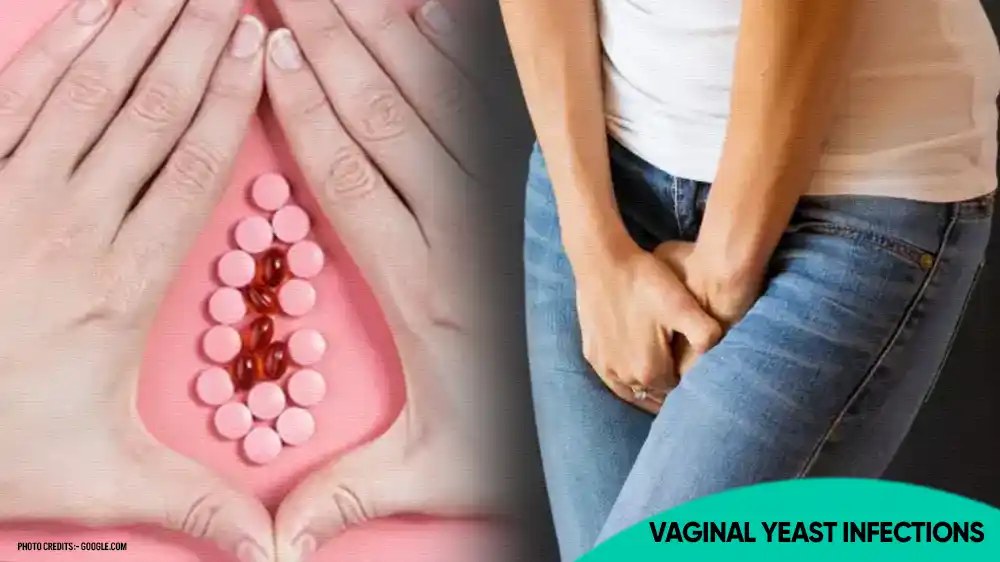
HEALTH NEWS
Chemicals in Baby Products Linked with Premature Birth
-
 Rahul Priydarss
Rahul Priydarss - January 29, 2024

T
he presence of Chemicals in Baby Products. Shockingly, these chemicals have now been linked with an alarming consequence: premature birth.
Table of Contents
Introduction:
In the pursuit of providing the best for our little ones, parents often meticulously choose baby products, ranging from diapers to lotions, aiming to keep their infants safe and comfortable. However, a recent study has shed light on a concerning issue that has been lurking in the seemingly innocent items we use daily – the presence of harmful chemicals. Shockingly, these chemicals have now been linked with an alarming consequence: premature birth. chemical found in baby products may be associated with premature birth, a new study by researchers at UC Davis has found.
More Details Of Chemicals in Baby Products:
– Exposure during pregnancy to several organophosphate ester flame retardants, also known as OPEs, has been linked to birth before full term, with other OPEs being linked to higher birth weight, according to a new study in the journal Environmental Health Perspectives.
– OPEs are found in a vast number of things, including furniture, baby products, electronics, textiles and building materials. They are flame retardants used to prevent fires, and also to make plastic products.
– These chemicals were used increasingly from the mid-2000s as polybrominated flame retardants were phased out due to toxicity concerns, with OPEs taking their place.
– However, OPEs degrade over time and become particulate, being found in dust, and therefore entering the body via skin or inhalation. OPEs are often found in urine from people across the U.S., leading the researchers at UC Davis to investigate if they have any effect on pregnant women and their babies.
The Silent Culprits:
Numerous baby products, including diapers, wipes, shampoos, lotions, and even toys, contain an array of chemicals that serve various purposes, from enhancing fragrance to extending shelf life. Unfortunately, some of these chemicals have been identified as potential contributors to premature births. Phthalates, parabens, and certain flame retardants are among the culprits, and their prevalence in baby products is raising eyebrows in the medical and parenting communities alike.
The Study:
A groundbreaking study conducted by leading researchers in the field analyzed the chemical composition of commonly used baby products and cross-referenced it with data on premature births. The results were both shocking and conclusive – mothers who were exposed to higher levels of certain chemicals during pregnancy had a significantly increased risk of delivering prematurely.
Phthalates, commonly found in plastics, fragrances, and personal care products, emerged as a major concern. These endocrine-disrupting chemicals have been linked not only to premature births but also to developmental issues in infants. Parabens, frequently used as preservatives, and flame retardants, found in various baby items, also showed a concerning correlation with premature births.
Expert Dr Opinions for Chemicals in Baby Products :
Leading experts in obstetrics and paediatrics are urging parents to scrutinize the ingredient lists of baby products more closely. Dr. Emily Rodriguez, a renowned obstetrician, emphasizes, “Expectant mothers must be aware of the chemicals they are exposed to during pregnancy. The link between certain chemicals and premature birth is not something we can afford to ignore.”
Dr. Michael Thompson, a paediatrician, adds, “The vulnerability of infants is heightened during the early stages of development. Exposure to harmful chemicals during this critical period can have long-lasting effects on a child’s health.”

Industry Response:
In response to the study’s findings, several major baby product manufacturers have pledged to reevaluate and reformulate their products. Some have committed to phasing out the use of certain chemicals known to pose risks during pregnancy. However, critics argue that more comprehensive regulations are needed to ensure the safety of all baby products on the market.
Consumer Awareness:
As the findings continue to circulate, parents are becoming increasingly vigilant about the products they choose for their babies. Online parenting forums and social media platforms have become hubs for sharing information about safer alternatives and product reviews. The demand for natural and organic baby products has seen a surge, indicating a shift in consumer preferences towards chemical-free options.
Frequently Asked Questions (FAQs):
A1: Not all baby products are equally harmful, but certain items such as diapers, wipes, lotions, and toys may contain chemicals like phthalates, parabens, and flame retardants. It’s crucial to scrutinize ingredient lists and opt for products free from these potentially harmful substances.
A2: Expectant mothers can take proactive steps by choosing baby products with natural or organic ingredients and avoiding items with phthalates, parabens, and flame retardants. Reading product labels, opting for fragrance-free options, and staying informed about potential risks can significantly reduce exposure during pregnancy.
A3: Some major baby product manufacturers are responding to the concerns raised by reformulating their products and pledging to phase out certain chemicals known to pose risks during pregnancy. However, critics argue that more comprehensive regulations are necessary to ensure the safety of all baby products on the market.
A4: Parents can stay informed by participating in online parenting forums, engaging on social media platforms, and reading articles on baby product safety. Sharing experiences and product reviews with other parents can help create a community that advocates for safer alternatives. Additionally, choosing natural and organic baby products is a growing trend, indicating a shift towards chemical-free options in the market.

-Remember, Always consult with healthcare professionals or Doctors for personalised advice related to medical conditions.
Conclusion:
The revelation that chemicals in baby products are linked with premature birth serves as a wake-up call for parents, healthcare professionals, and the industry at large. As the spotlight intensifies on the potential risks associated with certain chemicals, stakeholders must collaborate in prioritizing the safety and well-being of the most vulnerable members of our society – our precious little ones. Parents are encouraged to stay informed, scrutinize product labels, and advocate for stricter regulations to ensure a healthier start for the newest members of our families.




